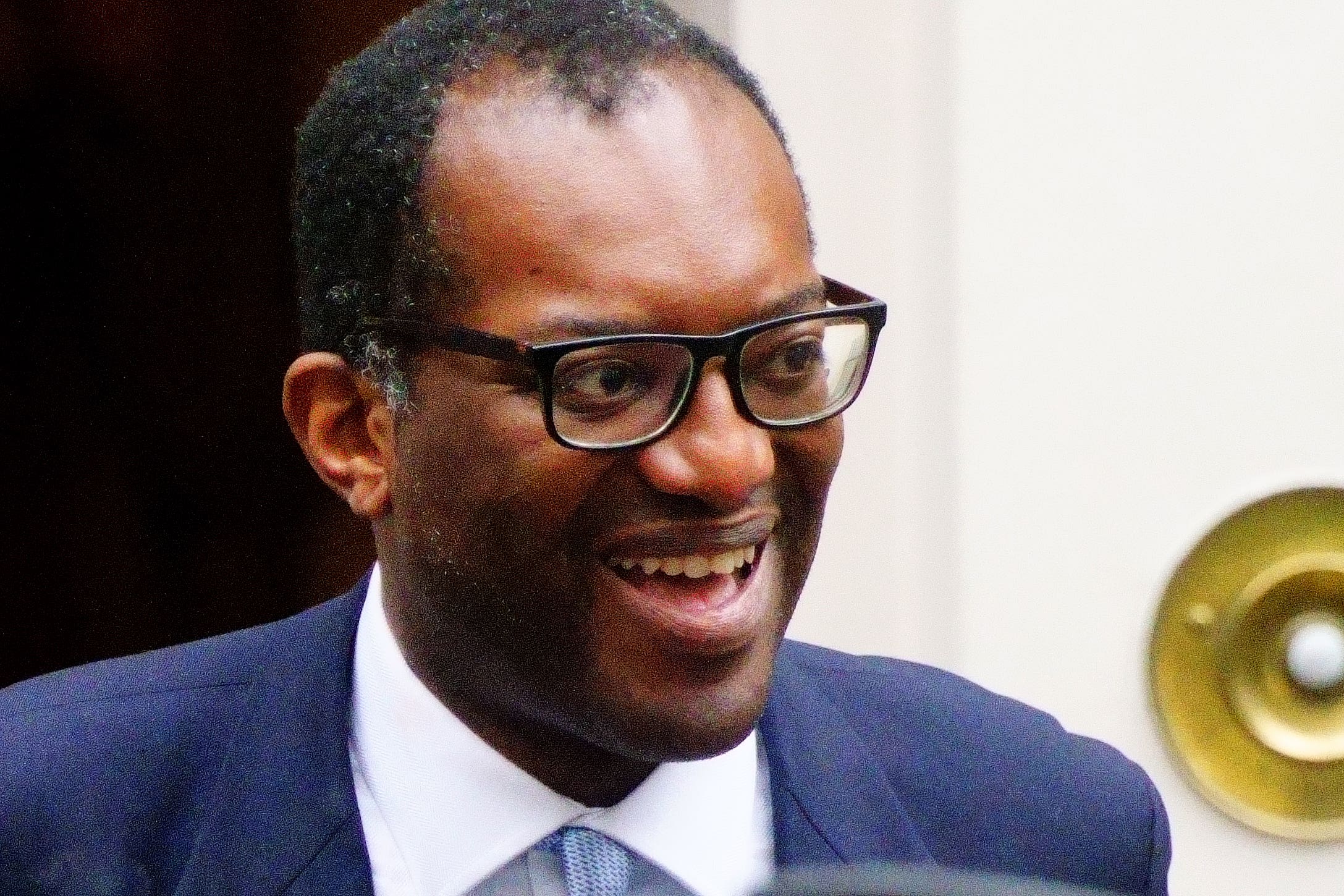Kwasi Kwarteng reveals he has been hit by aftershock of his own budget
Former chancellor says his tracker mortgage has gone up ‘a great deal’ but denies responsibility
Kwasi Kwarteng has revealed he was hit by the aftershocks of his own mini-budget – but denied rising interest rates are his fault.
The former chancellor said he was on a tracker mortgage and that his payments had gone up "a great deal" as interest rates went up.
Last September's "fiscal event" delivered by Mr Kwarteng included vast unfunded tax cuts and caused a turbulent market reaction that saw the Bank sharply put up its base rate.
Asked during an interview on GB News whether he had sympathy for people hit by the reaction to his policies, he said: "If course I do.
“I'm probably revealing too much: I'm on a tracker, so I'm affected as well. They've gone up considerably."
But he rejected the claim that his own mini-budget was to blame for the increased costs, arguing that it was the Bank of England that was in charge of interest rates.
"The Bank of England was in charge of inflation and my tracker rate and other people's tracker rates will be linked to the Bank rates, and whatever margin you have to pay.
"And the reason why interest rates have gone up so high is because we've totally missed the goal on inflation, we've misjudged inflation."

Asked how much his mortgage had gone up by, Mr Kwarteng added: "A lot, I'm not going to reveal [exactly]. A great deal: we bought the house in 2021. It's gone up quite a bit since then and I'm as exposed to interest rates as anyone else."
The expected expansionary effect of the tax cuts proposed by Mr Kwateng and prime minister Liz Truss caused inflation expectations to significantly increase following the mini-budget.
In October Bank governor Andrew Bailey said the extra stimulus caused by the budget policies would add to inflation and force the Bank to take tougher-than-expected action on rates.
The central bank has a mandate to keep inflation at 2 per cent and raises interest rates – making economic activity more expensive - to cool the economy if the metric is significantly over target.
Economists say the policies added to already high inflation caused by surging food and energy prices, triggered by the war and Ukraine disrupting supply.
Mr Kwarteng, a longtime ideological bedfellow of Ms Truss, was dismissed after just 38 days in post – shortly before the prime minister also resigned.
Join our commenting forum
Join thought-provoking conversations, follow other Independent readers and see their replies
Comments


Bookmark popover
Removed from bookmarks